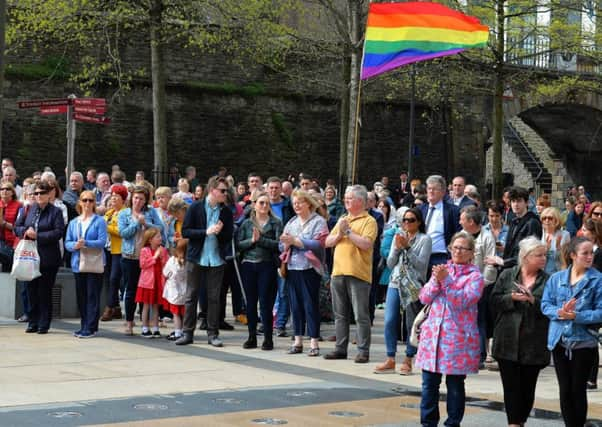‘Lyra killing was not due toBrexit but it is fraying peace’


Professors Carolyn Gallaher and Kimberly Cowell-Meyers of the American University in Washington, D.C., made the argument in an article for Dubin City University’s Brexit Institute entitled ‘Will Brexit Return NI to War or Reinforce the Status Quo?’
The duo believe fears of a degeneration into further violence here are overstated.
Advertisement
Hide AdAdvertisement
Hide Ad“Some people worry that Brexit has real potential to reignite NI’s Troubles. Both the January car bomb in Derry as well as the murder of journalist Lyra McKee have a lot of people on edge,” they write.
“The ‘New IRA’, which was held responsible for both incidents, is also reportedly recruiting young people in Derry. A lot of evidence suggests that these fears are overstated. First and foremost, neither the car bombing nor McKee’s murder had anything to do with Brexit.”
Profs. Gallagher and Cowell-Meyers further state that most experts agree groups committed to continued acts political violence today are in no way comparable to their predecessors of 50 years ago.
And they add that the anti-nationalist discrimination that helped spark the conflict no longer exists.
Advertisement
Hide AdAdvertisement
Hide Ad“Dissident Republicans just aren’t very popular among the wider nationalist population,” the argue.
However, they warn: “We do have reason to be worried. Even though Brexit wasn’t behind either incident in Derry, Brexit is eroding an already frayed peace process that kept many such incidents at bay.”
Their paper observes how “Derry has the slowest-growing economy of cities in the UK, and Creggan, the neighborhood where McKee was killed, sees one-third to one-half of its children growing up in poverty” and argues that “the real problem Brexit poses is not so much that it might lead to a return to war but that the work of reconciliation and peace-building might stop”.